When I woke up that morning, my throat was sore, and chills were running through every nerve of my body. As each hour passed, my symptoms got worse. Was it a cold, a fever, or something else? As I lay in bed trying to fight this infection, I thought back to home. My Vietnamese mum would be making me ginger lemon tea to help with the sore throat and perform “coin therapy” to help with the body aches, chills, and the increasing temperature. The technique, practiced in China and Southeast Asia, consists of rubbing a coin, jade, or buffalo horn over lubricated skin. But my mom wasn’t around, and I didn’t have any buffalo horn handy.
By the third night, I couldn’t handle the pain. I heard the campus manager of the University of New England’s Tangier campus, Mourad, speaking to someone in the hallway as he fixed the light fuse in our building. “Mourad,” I yelled out from my room because getting out of my bed was torture, “would you be able to take me to the doctors tomorrow morning? I also have the orphanage volunteering to do. Would I be able to take a sick day?”
“Yes, it’s okay. You gotta get better. Don’t worry about the orphanage. What are your symptoms?”
“I have a headache, my stomach hurts, my body aches and I feel cold and hot.”
“Ok. Wait, I will come back.” He left in a rush. Half an hour later, I heard his footsteps in the hallway. Opening my door, I saw he had a bottle of liquid and bandages.
“Come, come. This is rose water. It’s very good for you. It’ll help with your fever and headache.”
I sat up, and he began to tie a bandage around my head. He then poured the rosewater all over my face. I sat there in silence with my eyes closed as Mourad wiped my face with a napkin, hoping that the rosewater wouldn’t get into my eyes. With each second, the rosewater began dripping down, making it harder for me to open my eyes. The smell of rosewater was familiar. I thought about it for a second, but I couldn’t put my finger on it. Then I remembered that it was a similar smell to a strawberry-flavored gummy candy that as a kid my mum would always get me when we went to the Asian market. I began wiping the rosewater out of my eyes so I could see.
“La la, don’t worry,” Mourad assured me. “Rosewater is good for you. It’s good for the skin and everything. Don’t worry.” He repeated this phrase while wiping my face with a napkin again.
While lying there, waiting for my headache and chills to go away, I thought back to when we went to Tetouan and walked to a “pharmacy” in the Medina. We approached a small doorway, where only one person could enter at a time. It looked like any other building with the same kind of Moorish designs. It wasn’t a modern pharmacy, where you have a pharmacist dressed in a white lab coat. Instead, it was a traditional pharmacy, a place where locals and travelers come and seek out the traditional and natural remedies of Morocco. We entered and. to the right, I saw shelves of numerous jars on the wall in front of me. Each jar had different colors of dry herbs. I couldn’t stop smiling because the jars reminded me of my Vietnamese grandparents’ medicine cabinet, which is full of herbs, oils, and spices. Before leaving for Morocco, my grandmother told me, “If anything happens, give me a call and I’ll send some dry daisy, cumin, and green eagle medicated oil.”
During my childhood, natural medicine was used for 99 percent of the problems in my family. Daisy helped with cleansing intestines and common colds, cumin helped with acne, and green eagle medicated oil soothed aches and muscle pains or soreness. I would always get lectured on how good the natural herbs are for your body.
Once I was back on my feet thanks to the rose water, I decided to research traditional medicine and natural herbs in Tangier. My first discovery was a step-by-step recipe for a Moroccan love charm by the American expat writer Paul Bowles. Bowles’s magic love potion requires that you “buy an egg. Find a dead donkey, and the first night lodge the egg in its anus. The second night the egg must be put into a mousehole on top of a Muslim tomb. The third night it must be wrapped in a handkerchief and tied around the chest of the person desiring to perform the magic. The following day it must be given for breakfast, prepared in any fashion, to the other individual, who, immediately upon eating it, discovers that the bestower is necessary for his happiness. (Or her happiness; the sex of the two people seems to have nothing to do with the charm’s efficacy.)”
It was funny advice but didn’t get me far in my quest. Then I remembered Mourad, a man who has connections to everything. I rushed down the stairs and to his office, but he wasn’t there. You can never find him in his office because he’s always roaming around looking for problems to solve in his black long coat, button-up shirt, dress pants, and shoes.
I was a little disappointed, but there was always tomorrow. I made my way out of the building and walked to Mosaic, a cafe across the street. I asked for my usual, coffee with milk, and the owner nodded. I sat at one of the tables outside when Mourad strode his way into the cafe with his usual big smile.
“Haha, are you drinking coffee? Do you like it?” He joined me at the table. I nodded. “I’ve been looking for you. I need help finding a traditional pharmacy. Do you know anyone?” He thought about it for a few minutes. Meanwhile, the café’s owner came up to him. They chatted in Arabic. I sat there smiling, wishing that I knew what they were saying. In the end, he told me he’d need more time to find the pharmacy.
I turned to Tarik, one of my friends, who was born and raised in Tangier. He moved to California in 2009 to follow his career in music but came back to Morocco to take care of his father, and he has been here ever since. He told me there are many traditional pharmacies close to the Medina. We walked to each shop, vainly hoping to find what I was looking for. I then asked Mourad one more time for help, hoping that he’ll know someone from his hometown or district, but still no luck.
“I want to find you someone that is able to give you all the information you seek,” he said with resolve.
“Yes, but who?” He threw his hands up in frustration. Finally, he decided to take me and my fellow student Khelin, who’s Cambodian, to see a well-known musician named Abdellah Boulkhair El Gourd. He was born in Tangier and became a master healer through Gnawa music. As we approached his door of his music studio, he stood at the entrance ready to greet us. We sat around the table, and he talked about all the American jazz greats he had worked with over the years.
I was on the edge of my seat eager to learn more about the music. I was hoping that he would also talk about magic herbs or potions, but he didn’t. We said our goodbyes, then headed for home. Mourad decided to stop by an herb shop to buy his wife a few things. It was a small store crowded with locals. There were jars of herbs on the walls in front and to the side, and natural oils such as argan on shelves.
“Go ask him some questions,” Mourad nudged me. “Oh, ok.” I took out my phone and looked at my notes. “How are these herbs made? Do you make them or buy them from a vender? Do you dry the plants?”
“Yes.” I didn’t think he understood what I was saying so I turned to Mourad for some help.
“Does he buy or produce some of the herbs?”
“Yes, he makes some and buys some. Ask him more questions,” Mourad nudged me again.
I tried asking him more questions, but he had customers coming in and I didn’t want to take him from selling his produce. Plus, I felt like a pest.
Mourad got four bags of herbs and Khelin bought a little bottle of almond oil to test on her skin. We proceeded out the door and back to campus.
But I didn’t give up, and each time I walked through the Medina, the natural herbs—curcumin, black cumin, olive oil, thyme, mint, ginger, argan oil, and lavender—reminded me of home, and reminded me of my quest to find out more about the connection between our cultures.
One day, I walked into a shop and the merchant, wearing a tracksuit and Adidas sandals, smiled at me. I began pointing at one of the herbs a woman had just bought. They were dry black seeds. I couldn’t make out the name because it was in Arabic. “What is this?” I asked the man. He looked at me confused.
“Tu parle francais?” I said to him. He looked at me again confused.
“Francais? Francais?” He shook his head and said “La. Tu hablas espanol?”
“Un poco,” I responded.
“Es comino negro,” he said. He spoke quickly and the only word I could make out was black. He saw the confused look on my face and began chuckling.
A woman walked into the shop. She bought a big bottle of argan and almond oil. He said something to her in Arabic. I just stood there and smiled at their conversation because I could tell he was talking about me. She looked at me and said with her thick accent, “this is black cumin.” She then asked if I needed help with anything else. I explained to her that I needed some information about traditional medicines. She was happy to help. She translated the information the owner of the shop told her.
Black cumin has been used for centuries, I learned. The seed is mostly used to treat common conditions and illnesses such as asthma, menstrual problems, and digestive problems. It can also help reduce inflammation, allergic reactions and is thought to help with rheumatoid arthritis.
I asked her if there was any magic herbs or potions in the shop. She smiled and translated to the man in Arabic. They had a pretty long conversation. She turned to me and said, “No, there aren’t any magic herbs or potions in the store.”
“Thank you so much for your help,” I said to the woman with a smile and bought a little bag of black cumin to test for myself.
As I began to walk out of the shop, a man was walking in. He saw that I had black cumin in my bag and smiled. “Do you know what that is?” He pointed at my bag. I was shocked by how good his English was. “Yes, black cumin.” He nodded his head and began telling me that the herbs in Morocco have some type of magic in them. He had a friend who traveled the world finding natural herbs. He began experimenting with the herbs that he found and began testing on animals such as cats. He later became crazy and then a little psychotic. The fumes from the herbs messed with his mind.
“Is there any chance that I would be able to meet your friend and have an interview with him? I’m doing research on natural herbs and magic potions?”
He looked at me and squinted. “Maybe, I’ll have to ask him.” I grabbed his contact and made my way out the door.
As I was walking home, I thought about how I could incorporate traditional medicine to my future career. I pondered the idea of opening my own practice, whether it be in Tangier, Vietnam, or in the States. Big ideas began filling my mind. While I couldn’t find any magic potions, I did find a stronger commitment to my career choice. Maybe that’s all the magic I need.
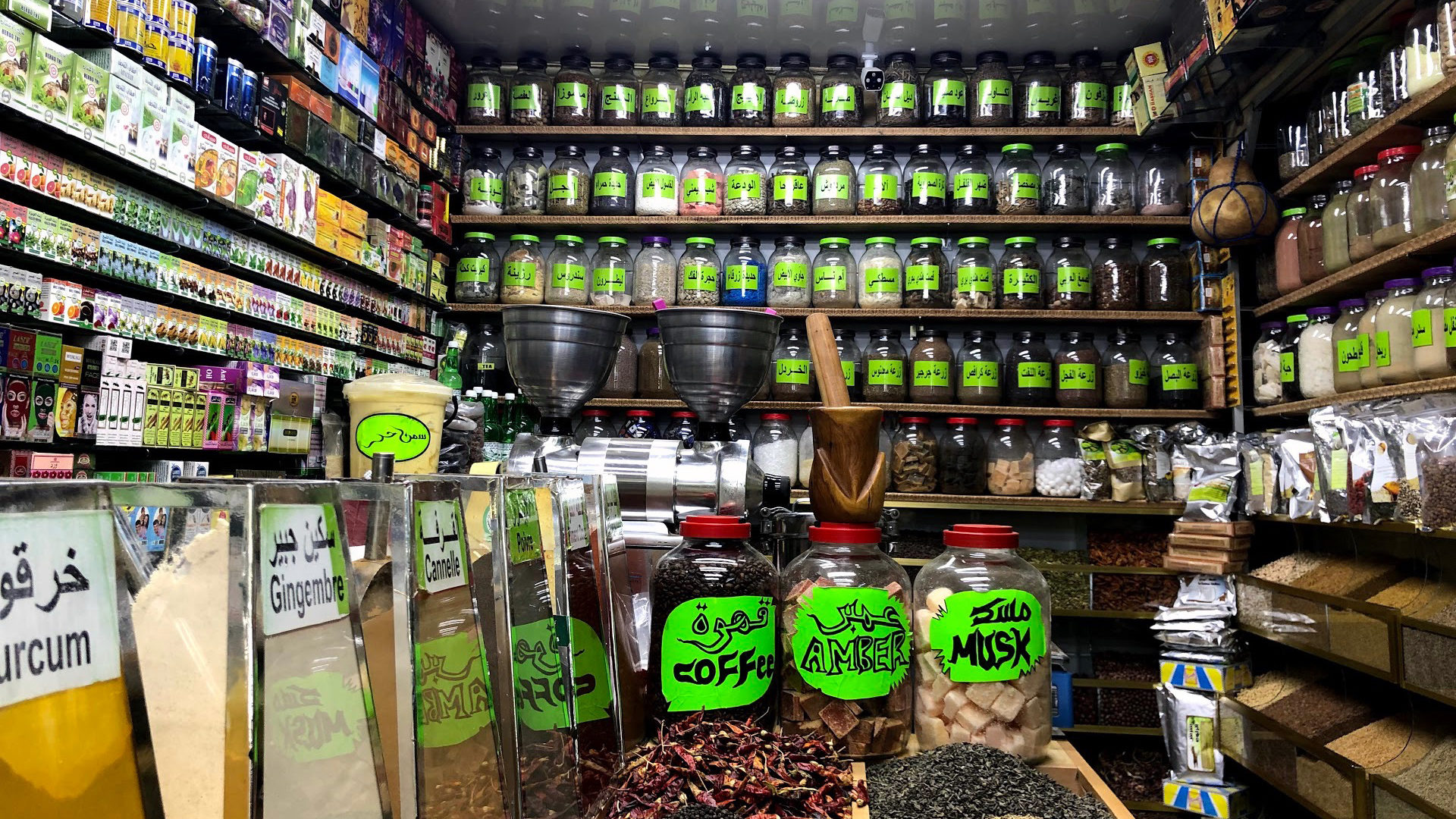
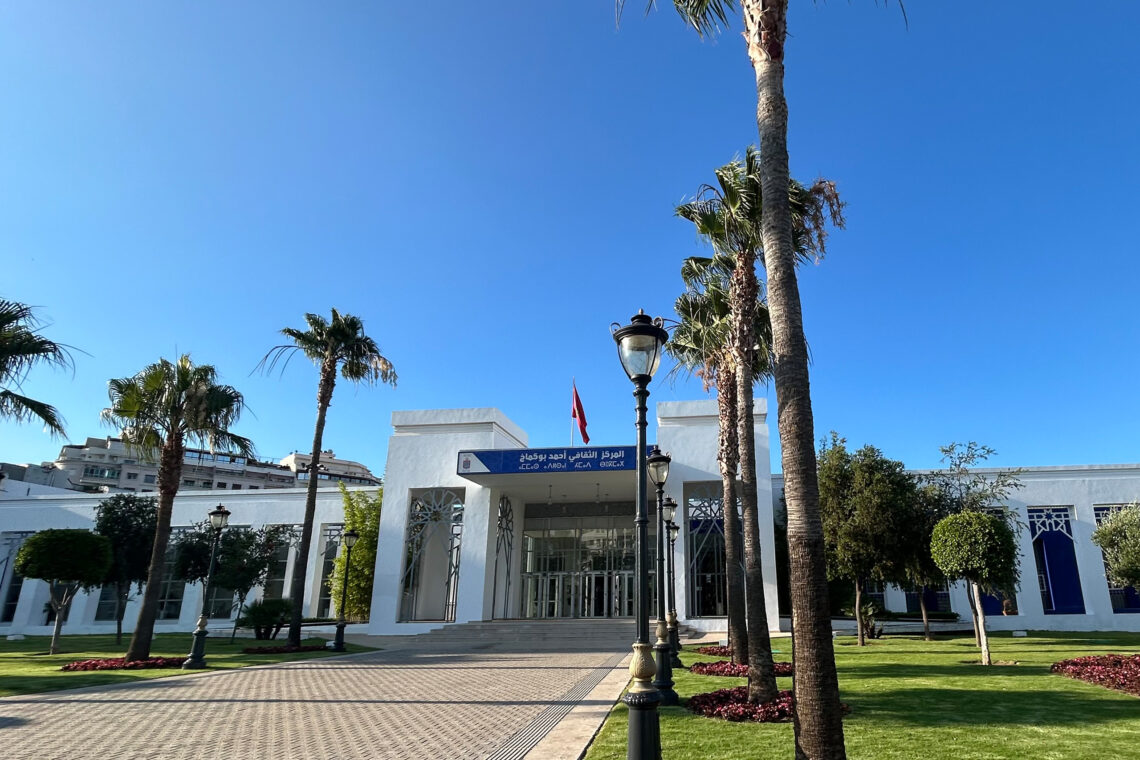
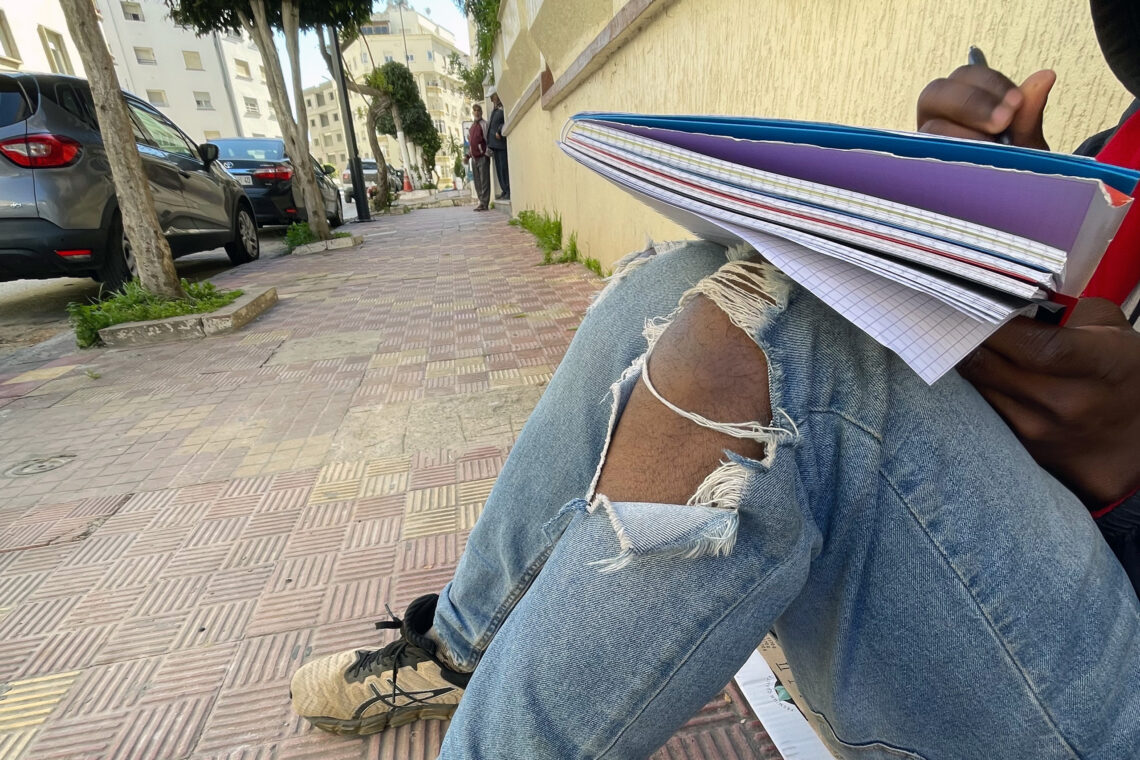
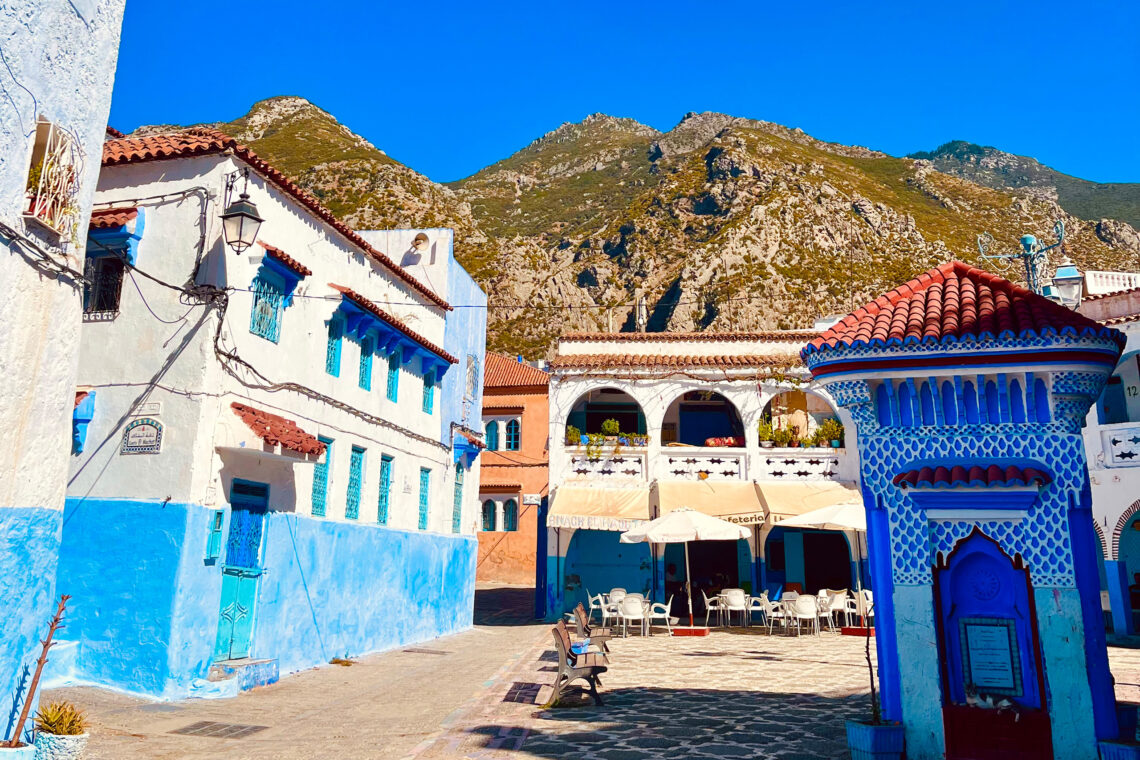
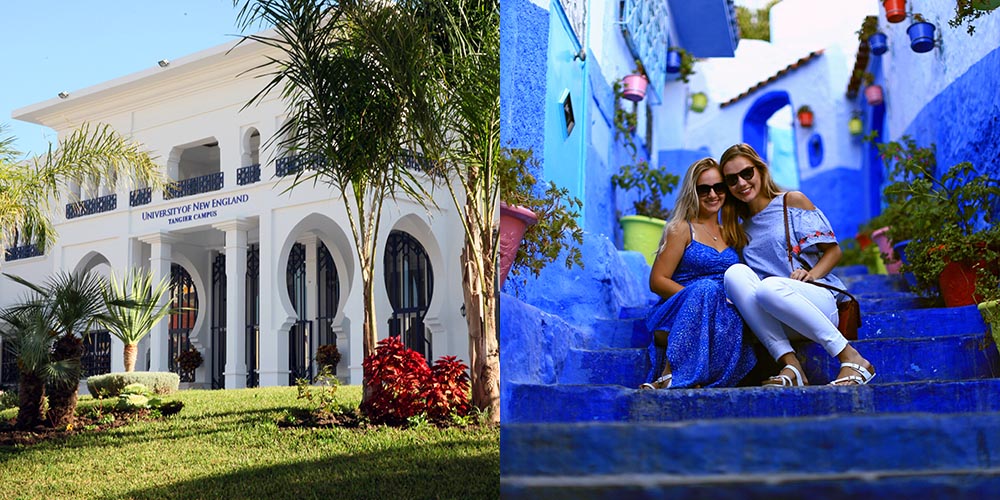

Comments are moderated by the editor and may not appear on this discussion until they have been reviewed and deemed appropriate for posting. All information collected is handled in a manner consistent with our privacy policy.